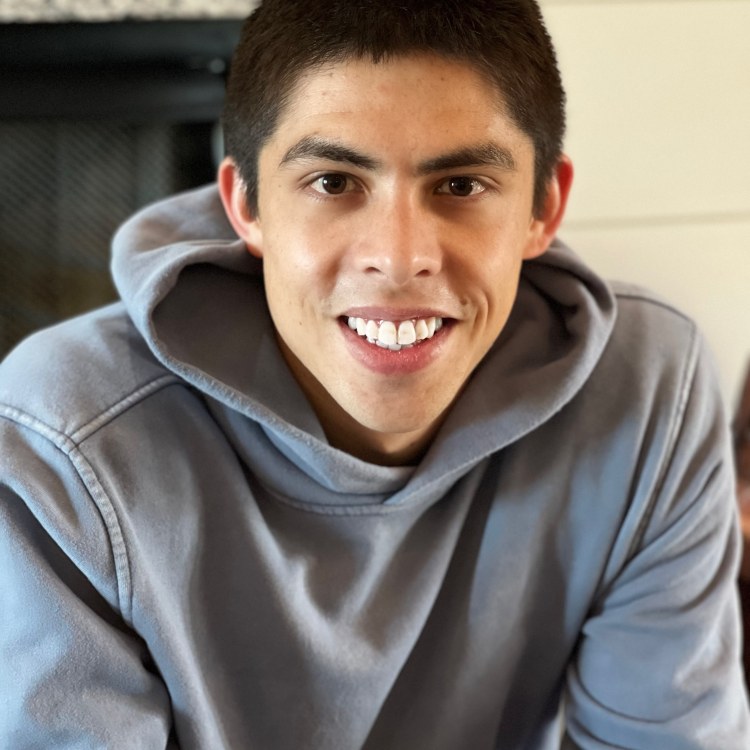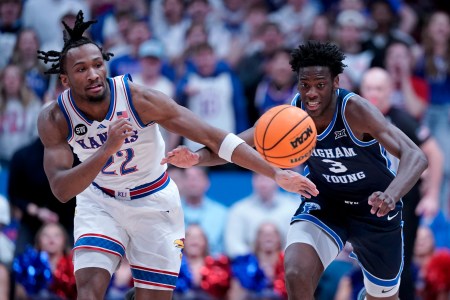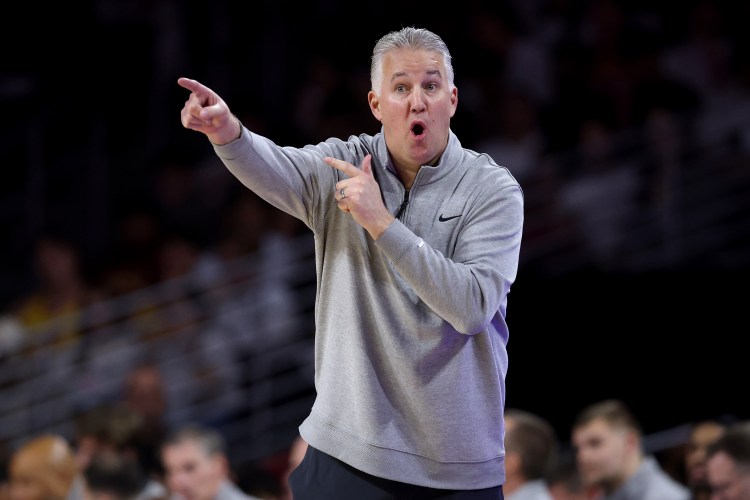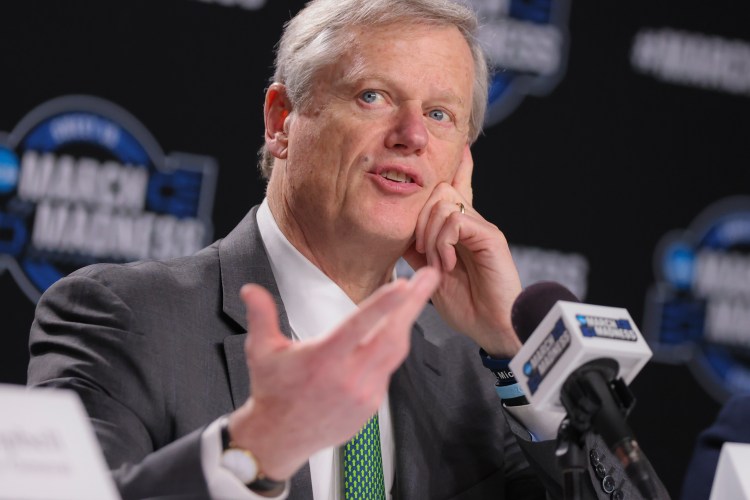There was a time not too long ago when the faces at conference media days were mostly familiar to him; when rosters didn’t vary so much from year to year; when the majority of programs expected to thrive off continuity. Thad Matta knows those days are long gone.
“We always had a recruiting board that had four years on it,” the Butler coach tells Hoops HQ. “You had the current team, you had next year’s team, two years and three years down the road. Those don’t exist anymore.”
Matta is seated at a small table inside the Delta Club at Madison Square Garden, having just completed his formal Big East Media Day circuit. The spectacle is nothing new to him, but the questions and conversations have certainly evolved. Unlike other veteran coaches, Matta doesn’t lament the changes to the college basketball landscape. In some ways, they are exciting, presenting unique obstacles for him to tackle. “Every coach you interview here will say, ‘This isn’t like the old days,’” he says. “So from that perspective, it is a good challenge.”
On Wednesday, Nov. 5, Matta will begin his fourth season at Butler (fifth if you count his first stint with the program 25 years ago) and his 21st overall as a head coach. While the sport has transformed immensely over that time, Matta hasn’t. His coaching style and mentality are largely the same as they were at Ohio State, where he won three Big Ten Coach of the Year awards and made two Final Fours between 2004-17. His passion and drive remain strong, even though the odds are — and have been — stacked against his team.
Butler was ranked 10th out of 11 in the 2025-26 Big East preseason coaches’ poll. The program has floundered throughout Matta’s tenure, finishing no better than eighth in the conference. Last season, the Bulldogs went 15-20 and 6-14 in league play. There was some speculation that Matta, who turned 58 in July, might retire. But here he is at another media day, exuding optimism about the direction of his program. “(Butler athletic director) Grant Leiendecker is doing a heck of a job trying to up things for us and get us into the position where we can compete again,” says Matta. “So that’s the excitement for me. That keeps me going.”
After stepping away from coaching in 2017 due to health issues, Matta was inspired to return five years later because of the opportunity at Butler. The school has a special place in his heart: He played three seasons for the Bulldogs in the late 1980s, then served as an assistant coach under Barry Collier from 1991-94. He was the head coach for one season in 2000-01, guiding the program to the second round of the NCAA Tournament. He also met his wife, Barbara, at Butler, and his two daughters, Ali and Emily, are graduates.
“He loves Butler,” says 6-foot-4 junior guard Finley Bizjack, who is in his third year with the Bulldogs. “When you walk into Hinkle (Fieldhouse), you see his face on the wall. Having someone from Butler, I feel like that’s super important to our program.”
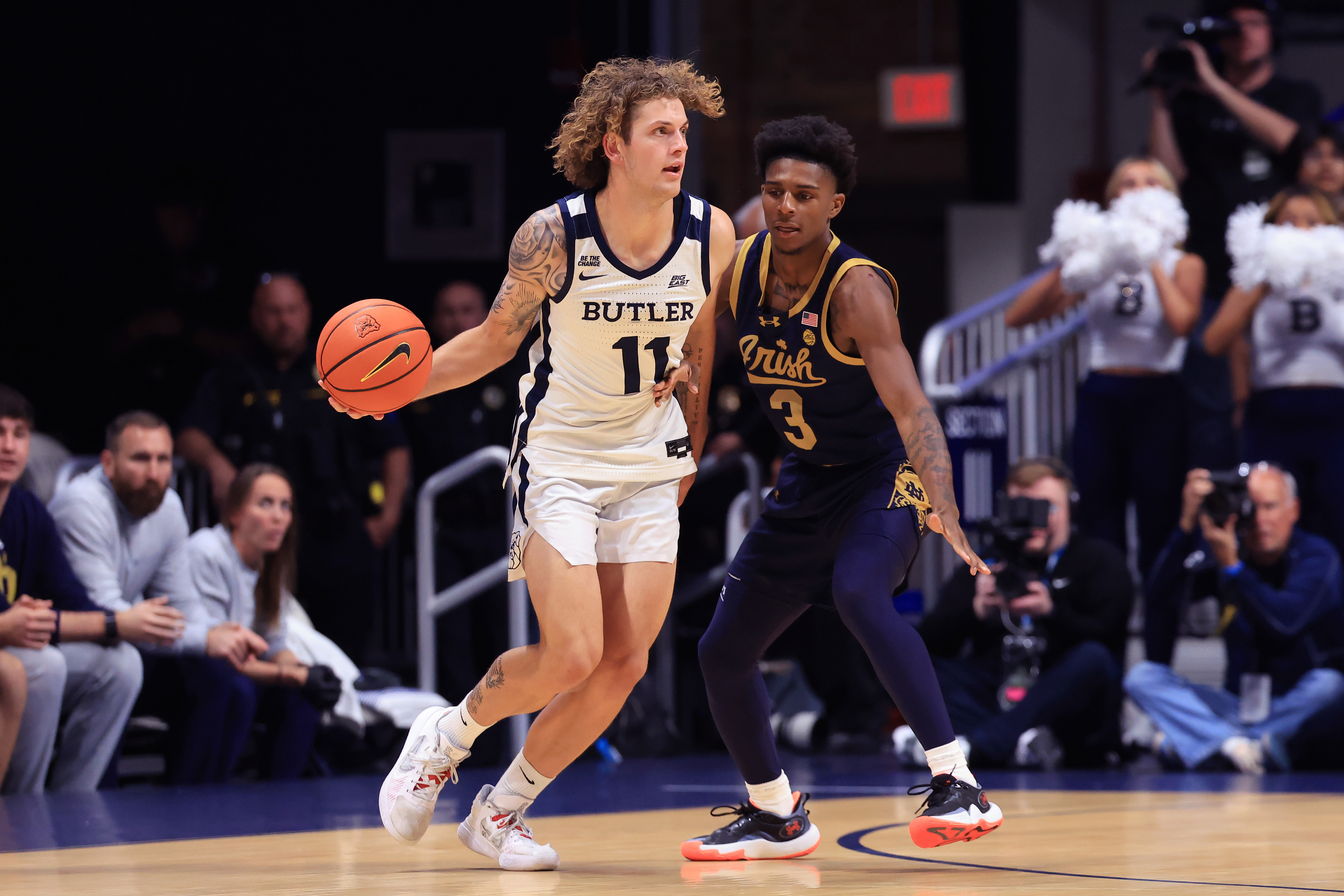
Matta’s longtime connection to the program makes his desire to turn it around especially profound. The Bulldogs haven’t gone dancing since 2018 (although they would have in 2020 had the tournament not been canceled due to the pandemic). They have had just one winning season in the last five years, struggling to compete in the NIL era. Without the same financial support as other high-majors, Butler has been fighting an uphill battle.
There is hope that the program is well-positioned to succeed in the new revenue-sharing system, considering it doesn’t have an FBS football team. “This transformational change to the funding model of intercollegiate athletics represents an opportunity for Butler to make up ground in the competitive basketball landscape, and we intend to do just that,” Leiendecker wrote in a letter to fans following approval of the House settlement in June. “Butler will emphatically and aggressively embrace this new model, while also continuing to prioritize the holistic student-athlete experience and educational benefits that have long been a trademark of our university.”
While Leiendecker works at “getting Butler in the game,” as Matta puts it, the coaching staff has been focused on making the most of what it has. This offseason, Butler had to rebuild its roster almost from scratch. Of course, Matta had to tweak his recruiting strategy significantly upon returning in 2022, shifting focus to the transfer portal. “I think during my time at Ohio State, we had three freshmen in high school commit to us, so I was watching eighth graders going to be freshmen,” he says with a chuckle. “I wouldn’t even think about doing that nowadays. That adjustment period has been interesting, but it’s one of those things where it is what it is.”
Cal, Texas and Indiana Enter the Field. Ohio State and Miami (Fl.) Drop Out.
Feb 2: Indiana and Texas enter the field, while Miami (FL) and Ohio State drop out
Admittedly, the chaos has been hard to navigate. While Butler was competing in the College Basketball Crown at the end of March, the staff was also chasing recruits (the portal had opened a week earlier). “If we weren’t coaching, we were doing Zooms,” Matta says. “It was the craziest thing I’ve ever seen.” After the Bulldogs narrowly beat Utah in the first round, they had to cancel Jalen Jackson’s official visit. The 6-foot-2 senior point guard, a two-time All-Horizon selection at Purdue Fort-Wayne, was one of their top targets in the portal. The idea that the team’s continued success in the Crown might jeopardize its success in 2025-26 really underscored the challenges of the new era.
Fortunately, Jackson still wound up committing. He was drawn to the Bulldogs for several reasons, including Matta’s impressive track record of developing point guards like Mike Conley Jr., Aaron Craft and D’Angelo Russell. “He’s been able to coach some really, really high-level guys,” Jackson says. “That speaks for itself.”
Matta’s grasp of the modern roster-building process has improved each offseason. He has learned not to panic or make impulsive decisions even as things move rapidly. He is careful to ensure that the program finds the right fits. “We still value academics, and that’s very important,” Matta says. “So going out and finding good kids, high character, good families, is something that we put a huge premium on.”
Butler has also been pursuing players who “have an edge about them” and a desire to prove something, Matta adds. Perhaps now more than ever, the program has embraced an underdog mentality. In addition to Jackson, the Bulldogs signed four other transfers, five freshmen and one international player. The headliner is 6-foot-7 graduate forward Michael Ajayi, who made the All-WCC First Team with Pepperdine in 2023-24 but was underwhelming at Gonzaga last season, averaging just 6.5 points and 5.4 rebounds in 18.9 minutes.
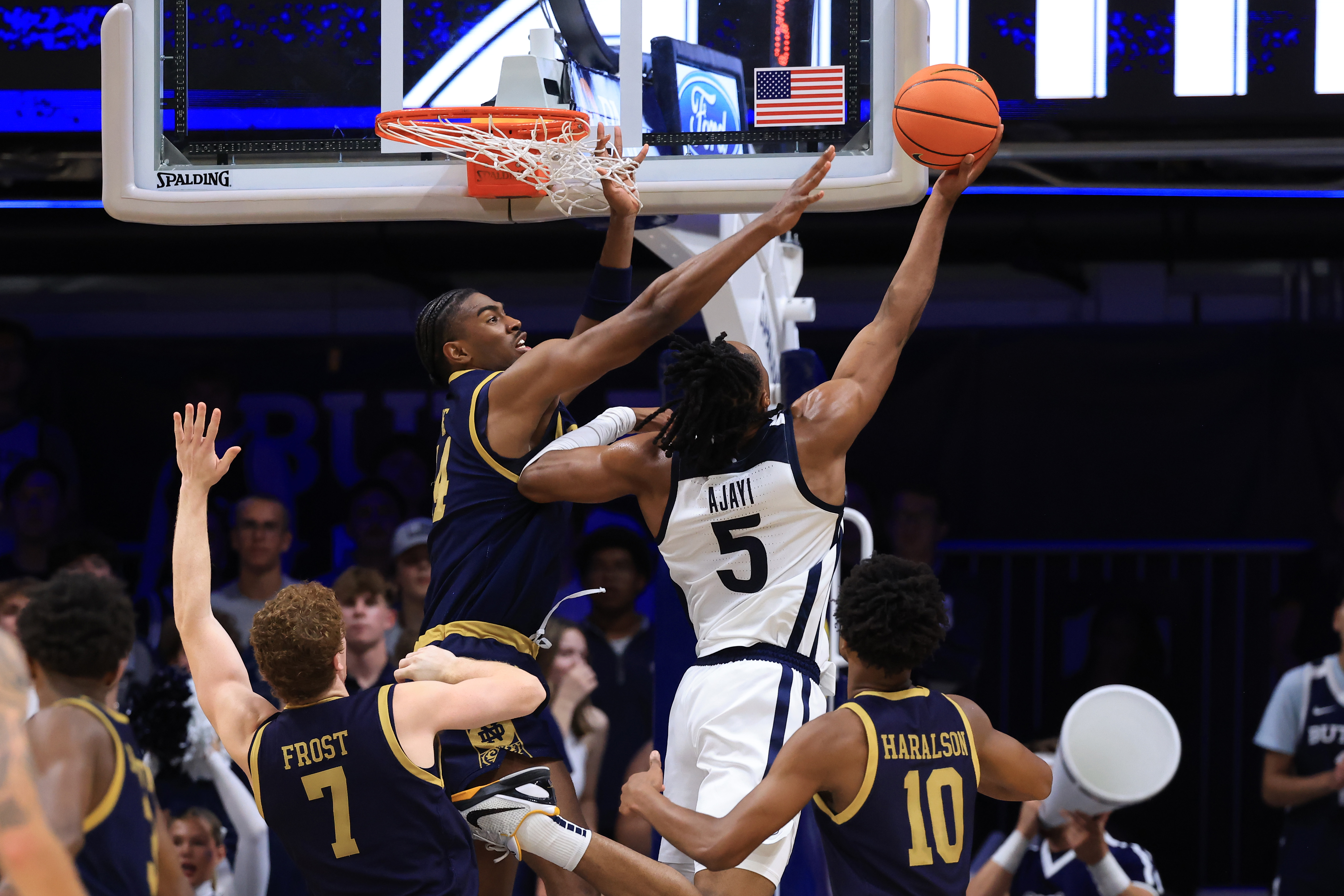
Outside of recruiting, Matta has approached the job in much the same way he did at Xavier and Ohio State. Yes, he has a whopping 11 new players, so getting everyone to mesh is a trickier task than it once was. But Matta is adamant that the big picture hasn’t changed. “It’s a group of guys,” he says. “(Whether) we’ve had them for months or we’ve had them for years, it’s still the same thing. It’s still developing young men to become the best that they can be. We’ve got a standard here of how we’re going to do things, how we’re going to practice, how we’re going to go to class, all those things. And to say, ‘Well, the game’s changed.’ It hasn’t. We have to score more points than our opponents. That’s the bottom line. And that’s never going to change.”
Matta falls back on Butler’s core values, commonly referred to as “The Butler Way”: humility, passion, unity, servanthood, thankfulness and accountability. Throughout his career, he has always maintained that the outcome of every game is determined by one or more of those values. His leadership style has also remained consistent. He is positive and even-keeled, striving to instill confidence in his players from the moment they arrive on campus. “Other coaches just yell and scream a lot to try to get their point across, but he just believes in you 100 percent,” Ajayi says. “Whatever you can do, he believes in it. So having that confidence in me is just really nice.” Ajayi relishes the little pep talks he receives from Matta before each practice, which are full of “encouraging quotes.”
Matta still aspires to build strong relationships with his players, understanding that many of them won’t be around for long. He thinks back fondly on the days when he would watch freshmen grow and develop inside his program until their graduation. He used to forge bonds over seven years (counting the recruitment process); now he often has only seven months. But he does whatever he can to make the most of that time.
Expectations couldn’t be much lower for the 2025-26 Bulldogs, yet Matta’s perpetual optimism and energy have rubbed off on his team. The players can feel his hunger to get the program back on track, and they have responded to it. “Everyone wants to be here, everyone wants to win, everyone’s about the right things,” says Bizjack, who averaged 10.3 points and shot 42.8 percent from three last season. “Everyone wants to be here so badly and wants to commit so hard to what it is we want to do, and that’s play in the NCAA Tournament.”
Beyond that, Matta isn’t thinking too far down the line. He hasn’t mapped out his future or the long-term future of the program. It feels futile to project ahead in a college basketball world that seems to be changing by the day. “Long-term plans now in college basketball are hard to imagine, because you just don’t know what’s going to happen,” Matta says. “I would love to be a program where we had continuity and retention. Is that possible? I don’t know. We’ve lost a lot of guys each year, but I think ultimately, that’s where we would all want it. But I don’t know if we’ll ever get there. So the long-term plan for me, quite honestly, is to coach my tail off every day and try to get this team (to be) the best we possibly can. And then you take a deep breath and say, ‘What’s next?’”



